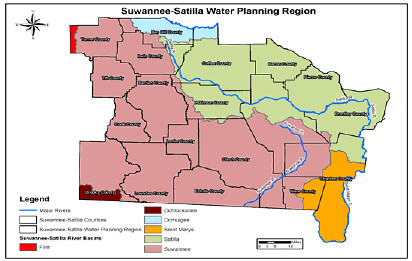 Al Browning of
WWALS
made a point yesterday that I haven’t heard mentioned
by local Chambers of Commerce or economic development agencies:
Al Browning of
WWALS
made a point yesterday that I haven’t heard mentioned
by local Chambers of Commerce or economic development agencies:
Suppose there’s a business looking to south Georgia, to move into an area. They can go to the Adopt-A-Stream website for that particular area, and get an idea of where the best water is. And they may choose… that Berrien County has terrible water; I’m going to go to Cook County, or Lowndes!
Here’s the video:
That’s Georgia Adopt-A-Stream, which currently doesn’t show any water quality testing sites for any of those counties, but that could change soon. Maybe economic development organizations should help it change, because that lack could be steering businesses elsewhere.
A prominent local economic development appointee asked me last year,
Why would you want absolutely clean ear or water?
Well, businesses considering moving here might want those things because their employees do. And their employees might want those things because they don’t want to get sick. And besides, who doesn’t like clean air and water?
-jsq












